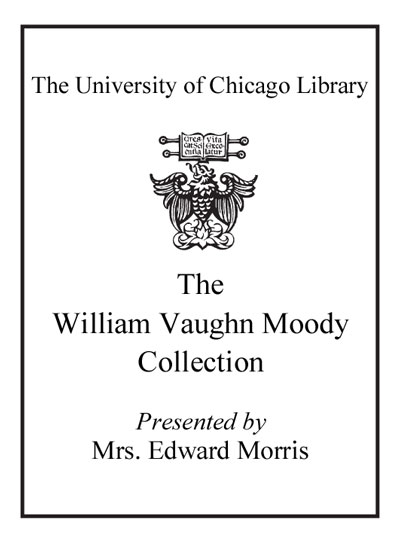Review by Booklist Review
Ehrlich writes about difficult subjects, some of her own choosing, others, such as her surviving a lightning strike ( A Match to the Heart, 1994), seemingly assigned by fate. Her newest book is a combination of the two. A Buddhist, Ehrlich went on a pilgrimage to four sacred mountains in China, hoping to "pick up the threads of a once flourishing Buddhist culture." In preparation, she read the Ch'u ci, a collection of ancient Chinese poetry that contains "Tian Wen," or "Questions of Heaven," a series of inquiries into the nature of life, but once she confronts the brutal realities of present-day China, she is forced to ask her own urgent questions. She climbs the first mountain and is distressed by the crowds and a filthy temple where uneducated monks watch television. At the summit, instead of finding serenity or a sense of the sacred, she discovers shops, "cheesy" hotels, and blaring music. But that affront pales in comparison with the still fresh and palpable horrors of the Cultural Revolution. Ehrlich went to the mountaintop and learned that in this blood-soaked land, heaven is found only in the heart. --Donna Seaman
From Booklist, Copyright (c) American Library Association. Used with permission.
Review by Publisher's Weekly Review
In spare, lyrical prose, Ehrlich inventively recounts her 1995 spiritual trip to China and Tibet. "I had come to China to pick up the threads of a once flourishing Buddhist culture," she writes, "and thought I could find it in their sacred mountains." First on Ehrlich's itinerary was to climb Emei Shan, one of China's four sacred Buddhist mountains. She interweaves the tale of her climb-encounters with nasty monkeys, Frisbee-tossing monks and countless Buddhist temples being renovated by the Chinese government for tourist purposes-with concise meditations on the meaning of mountains to Chinese religious culture: "The Chinese phrase for `going on a pilgrimage' actually means `paying one's respects to the mountain.' " Ehrlich's gentle idealization of the beautiful arts of Chinese dynastic Buddhism is all but blasted away when she witnesses the religious shards left by the Cultural Revolution. Her book is an elegantly kaleidoscopic fusion of travelogue, musings on traditional Chinese Buddhism and appreciation of Chinese landscape paintings of mountains. Like one of the landscape paintings of which she writes, Ehrlich's book is at once delicate, deeply considered and moving. (May) (c) Copyright PWxyz, LLC. All rights reserved
(c) Copyright PWxyz, LLC. All rights reserved
Review by Library Journal Review
At some point in every American Buddhist's life, he or she decides to take a spiritual journey to the East. Ehrlich's journey takes her to the Sichuan Province in China to climb Emei Shan, a sacred Buddhist mountain. Instead of finding a modern Shangri-La, she encounters a land destroyed by crass commercialism, corrupt monks, poverty, lamas, and scholars who are still deeply injured physically and psychologically by the atrocities of Mao Zedong's Cultural Revolution. Her descriptions are heartbreaking, especially of her visit to a wretched panda reserve in Chendu where the bears are only kept alive so foreigners will donate funds. Her pilgrimage seems a failure until she meets a musician who has dedicated his life to keeping alive the sacred music of his people, the Naxis. His philosophy, that music is medicine, leads the reader to understand that divinity does not necessarily reside only in holy places but also in the deep faith of good people. This is travel writing at its best. Recommended for all libraries.Glenn Masuchika, Chaminade Univ. Lib., Honolulu (c) Copyright 2010. Library Journals LLC, a wholly owned subsidiary of Media Source, Inc. No redistribution permitted.
(c) Copyright Library Journals LLC, a wholly owned subsidiary of Media Source, Inc. No redistribution permitted.
Review by Kirkus Book Review
A brief but valuable narrative of travel by essayist Ehrlich (A Match to the Heart, 1994, etc.), exploring the sacred and the profane in contemporary China. Ehrlich's search for an authentic Chinese culture and spirituality at first leads only to frustration. She climbs Emeishan, a mountain sacred in both Buddhist and Taoist traditions, only to find it overrun by crass commercialism. The few monks who operate a guesthouse for pilgrims don't impress Ehrlich as being very devout; instead, they are obsessed with TV. When she reaches the peak, she finds partially constructed ``Las Vegasstyle'' hotels and aggressive, ravenous monkeys who steal food and jewelry from tourists. Ehrlich suggests that much of this shambles can be traced back to Mao's Cultural Revolution, which irrevocably destroyed many of the remaining elements of an ancient culture. The second half of the book offers a slightly more optimistic view. Ehrlich travels to Lijiang, a remote city in the mountains near Tibet, and discovers a stubborn, persistent strain of ancient Chinese culture. She meets an aged musician who was imprisoned for 20 years by Mao and kept his sanity while in isolation by singing Taoist melodies to himself. Now free, his commitment to preserving elements of Chinese culture has led to the formation of a small orchestra, which has revived ancient musical traditions. In the book's last pages, Ehrlich travels with the orchestra to London on their first international trip, bringing the music of a lost culture to the West. The book is a fine travelogue but would have been more compelling if the author had provided a bit more on her own spiritual journey. In all, though, a worthy read. (3 b&w illustrations, not seen) (Quality Paperback Book Club selection; regional author tour)
Copyright (c) Kirkus Reviews, used with permission.
Review by Booklist Review
Review by Publisher's Weekly Review
Review by Library Journal Review
Review by Kirkus Book Review

